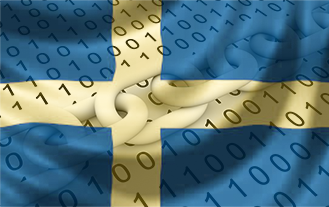
Sweden’s central bank is considering the launch of the eKrona. The move is designed to reduce or even eliminate banknotes and coins, opting instead for digital currency. In many ways, currency is already digital. Large amounts of money exist only in computers. Which raises the question about which method is the Swedish central bank going to use to issue the eKrona, given that most people are already using digital money of some sort. The answer is unclear, but the bank is investigating all possibilities according to reports, which might include blockchain.
The Disadvantages of a Blockchain-Powered eKrona
The Riksbank – central bank of Sweden – is unlikely to choose blockchain as the technology behind the eKrona, at least initially. This is due to the fact that it has already declared that it will continue to produce banknotes and coins until there is no demand for them anymore. It would be more challenging to have cash and blockchain working side by side. The notes and coins would probably have to be equipped with some kind of code that anyone receiving the cash should scan in order to register the transaction on the blockchain. That code has to be impossible to forfeit, which would be expensive.
In case the Riksbank does choose to mount the eKrona on a blockchain, there are other disadvantages that the bank will have to deal with. The following are some of the disadvantages the Riksbank might face:
- Teaching the population about blockchain money, especially certain sectors that might find it hard to get used to the new system.
- The issue of privacy, given that blockchain transactions are traceable (cash users remain anonymous to a large extent).
- Phase-out, the future role of banks and how to deal with a glitch in the blockchain (forking).
The Advantages of a Blockchain-Powered eKrona
Despite the difficulties of implementing a blockchain-powered eKrona, there are certainly some advantages in doing so. Here are some of them:
- Government expenditure transparency, since every transaction can be traced – many would say Sweden doesn’t need much more of it.
- Eliminating illegal money transactions. Illegal drug trade comes to mind, as well as money laundering and other such activities, which could potentially revert to barter.
- Quick and efficient transactions, driving transaction costs down.
Final Thoughts
The Riksbank declaration comes as many other central banks are conducting experiments to mount national currencies on blockchains, or to make their currencies digital through some other method. The system these banks chose matters, since most of the money supply in Sweden and other countries is already digital. That means that in a sense, the eKrona already exists.